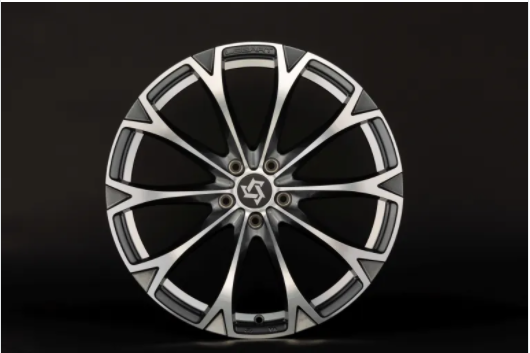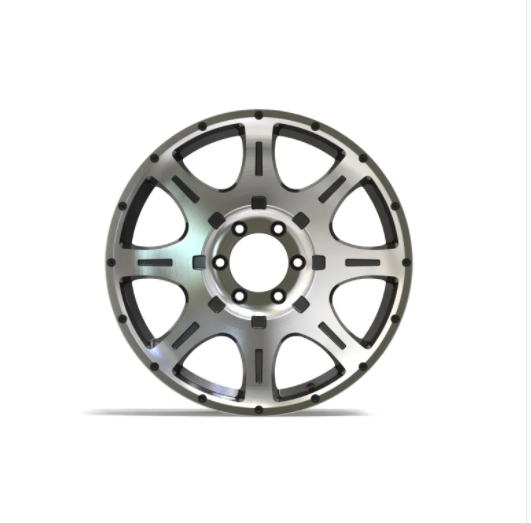Confused by alloy wheels and what they're used for? Get all the answers you need in this comprehensive guide.
Have you ever noticed a car with shiny, metal wheels? Chances are it had alloy wheels.
Alloy wheels have become incredibly popular in recent years among people who want their cars to stand out. But what exactly are alloy wheels?
In this comprehensive guide, we'll answer all your questions about custom alloy wheels and explore improved performance and style!
Have you ever noticed a car with shiny, metal wheels? Chances are it had alloy wheels. Alloy wheels have become incredibly popular in recent years among people who want their cars to stand out. But what exactly are alloy wheels? In this comprehensive guide, we'll answer all your questions about custom alloy wheels and explore improved performance and style!
What are Alloy Wheels – Definition, Materials, and Benefits
What are alloy wheels? What are alloy wheels made of? Alloy wheels meaning are aftermarket rims made from strong but lightweight materials like magnesium, aluminum, or aluminum alloys. This base design is then customized with more decorative finishes and designs, such as chrome plating and spokes of various shapes. They offer performance advantages over steel wheels, as they are often several pounds lighter per wheel - less weight means quicker acceleration and faster stopping.
By adding these elements, the wheel is transformed into something more visually appealing and stylish. They come in different sizes and styles to fit your vehicle, making them a great way to customize the look of your car.
In addition to their aesthetic appeal, alloy wheels also have several performance benefits:
Better Tire Performance: The reduced weight of alloy wheels allows for better contact between tire and pavement, resulting in improved grip and handling.
Better Braking: Alloy wheels dissipate heat better than steel wheels, resulting in improved brake performance and safer stopping power.
Reducing Weight: Alloy rims are much lighter than regular steel wheels, resulting in reduced overall vehicle weight and improved fuel efficiency.
Improved Suspension: Lightweight alloy wheels absorb shock better, resulting in improved handling and overall driving experience.
Increased Resale Value: All these benefits make wholesale alloy wheels a great investment. Not only will your car look great, but its resale value can increase significantly!
While alloy wheels may seem like a great purchase, it's important to keep in mind that they come with some drawbacks. They are more expensive than regular steel wheels and require special care when cleaning and polishing in order to keep their shiny finish.
Different Types of Alloy Wheels
Here’s a rundown of the common types of alloy wheels available:
Forged wheels are strong and lightweight, making them a great choice for performance cars. They are created by taking a block of aluminum alloy and heating it. The heated metal is then molded into a wheel shape with powerful machines that press the metal into its final shape under tremendous force. The final outcome is a wheel that is light yet incredibly strong, making it ideal for cars that will be driven at high speeds or on rough terrain.

Flow-formed wheels are slightly different from forged wheels in terms of construction. Instead of being pressed into shape with powerful machines, flow-formed alloy wheels begin as a blank piece of aluminum alloy which is then spun between two rollers at high speeds while additional pressure is applied to mold it into its final shape.
This process makes them lighter than casting wheels while still maintaining strength and durability. Flow-formed wheels tend to cost less than other types of alloy wheels due to their simpler production process.
Gravity casting involves pouring molten aluminum into molds where it cools and hardens into its final form. These types of alloys offer good strength and weight characteristics, although they will not be as lightweight as forged or flow-formed alloys since more material needs to be used during the gravity casting process in order to achieve its desired shape.
As such, they are usually found on larger vehicles such as SUVs or pickup trucks that require more stability when driving on rough terrain or at higher speeds due to their heavier weight.
4. Low-Pressure Casting Wheels
Low-pressure casting involves pouring molten aluminum at lower pressures so that air bubbles do not form in the finished product as they do with gravity-casting alloys. This method creates stronger alloys than gravity casting because less material needs to be used in order for it to take its desired shape without any air bubbles present in the finished product. Low-pressure cast alloys are often found on sports cars due to their combination of strength and lightweight characteristics that allow for better handling and performance when driving at higher speeds or on rough terrain.
These are the most common types of alloy wheels available on the market today. Still confused?
Don't worry, JWHEEL alloy wheels manufacturers is here to help. With their extensive knowledge and experience in alloy wheels manufacturing , they provide the best custom alloy wheels for customers worldwide.
Get in touch with JWHEEL and explore the possibilities today!
How to Choose the Right Alloy Wheel for Your Vehicle?
Here's what you should consider when selecting your alloy wheels:

1. Type of Alloy
The type of alloy wheel you choose should depend on your personal preferences and the intended use of your vehicle. If you’re looking for lightweight performance, then forged or flow-formed wheels might be the better choice.
However, if you’re looking for something that is more durable and can handle rough terrain, then gravity or low-pressure cast wheels might be the better option.
2. Wheel Design
The design of your alloy wheel will also play an important role when selecting the right one for your vehicle. You should consider the size and offset, as well as the overall aesthetic of the wheel. Some wheels also have deeper lips and more intricate designs, which can help to improve your vehicle’s look and performance.
3. Vehicle Bolt Pattern
Count the bolts on your current rims to identify your vehicle's bolt pattern. This will ensure that your new rims fit properly on your hub. Bolt patterns come in 4-, 5-, 6-, or 8-lug configurations, so make sure to double-check this before buying your alloy wheels.
By following these steps, you will be able to find the right alloy wheel for your vehicle. Remember to consider the type of alloy, wheel design, and vehicle bolt pattern before making a purchase. Good luck!
Final Thoughts on Investing in Alloy Wheels on a car
Alloy wheels can be a great way to improve the performance, look, and feel of your vehicle. By understanding the different types of alloys and how they affect the overall functionality of your wheels, you can make an informed decision when investing in alloy wheels for your vehicle. Additionally, be sure to consider the wheel design, vehicle bolt pattern, and any personal preferences you may have before investing in a set of alloy wheels.
With these tips in mind, you can make sure that the alloy wheels you choose are the best fit for your vehicle.